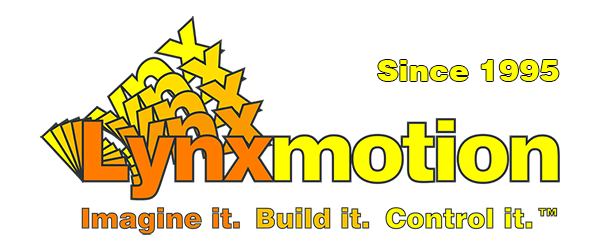Changes for page LSS-PRO CAN Bus
Last modified by Eric Nantel on 2025/03/24 07:17
Change comment: There is no comment for this version
Summary
-
Page properties (1 modified, 0 added, 0 removed)
Details
- Page properties
-
- Content
-
... ... @@ -1,14 +1,34 @@ 1 +LSS-PRO uses the extended CAN frame format to send and receive LSS command information. 2 + 3 +Since LSS commands are character data (1 character 1 byte), they cannot be directly assigned to the CAN Data field (8 bytes). Therefore, it converts the LSS command and assigns the conversion information to the **Identifier **and **Data field** of the extended CAN frame format. 4 + 5 +**Extended CAN frame format (29-bit CAN ID)** 6 + 7 +Extended CAN 2.0 B has 29-bit identifier which means that there are 2^29 = 536,870,912 unique CAN-IDs. With a longer 29-bit identifier field, Extended CAN frames support a significantly larger address space. accommodating up to or over 500 million unique message identifiers. 8 + 9 +Example: 10101010111000111010101011101 (binary 29 bits) i.e., 0x155C755D (hex). 1 1 2 2 12 +__CAN communication rate is set at 500kbps.__ 13 + 14 +Assign LSS command information to the field in green in this image~: 15 + 16 +[[image:Extended-CAN-frame-structure.png]] 17 + 18 + 19 +Command ID List 20 + 21 + 22 + 3 3 |(% colspan="2" rowspan="1" style="text-align:center" %)**Data format on USB-Serial**|(% rowspan="16" style="text-align:center" %) |(% colspan="3" rowspan="1" style="text-align:center" %)**Data format on CAN-Bus** 4 4 |(% colspan="2" rowspan="1" style="width:150px" %) |(% style="width:150px" %)ID[28-20]|(% style="width:300px" %)Reserved| 5 5 |(% style="background-color:yellow; width:150px" %)Header|(% style="background-color:yellow" %)# or *|(% style="background-color:yellow" %)ID[19]|(% style="background-color:yellow" %)Request/Response (0:Request 1:Response)|(% style="background-color:yellow" %)# = 0, * = 1 6 -|(% colspan="2" rowspan="3" %) |ID[18]|Presence of command parameters|Set to 1 if there are parameters such as D commands, set to 0 if there are parameters such as Query commands, etc. 7 -|ID[17]|Presence of sub-command id|Set to 1 if there is a Modifier command (SD/T), otherwise set to 0. 8 -|ID[16]|Presence of sub-command parameter|Set to 1 if there is a parameter for the Modifier command, otherwise set to 0. 26 +|(% colspan="2" rowspan="3" %) |(% style="background-color:#dbd3ba" %)ID[18]|(% style="background-color:#dbd3ba" %)Presence of command parameters|(% style="background-color:#dbd3ba" %)Set to 1 if there are parameters such as D commands, set to 0 if there are parameters such as Query commands, etc. 27 +|(% style="background-color:#bdac7b" %)ID[17]|(% style="background-color:#bdac7b" %)Presence of sub-command id|(% style="background-color:#bdac7b" %)Set to 1 if there is a Modifier command (SD/T), otherwise set to 0. 28 +|(% style="background-color:#bcd6f5" %)ID[16]|(% style="background-color:#bcd6f5" %)Presence of sub-command parameter|(% style="background-color:#bcd6f5" %)Set to 1 if there is a parameter for the Modifier command, otherwise set to 0. 9 9 (SD/T requires a parameter, so currently if ID[17] is 1, ID[16] will also be 1.) 10 10 |(% style="background-color:#22e817" %)ServoID|(% style="background-color:#22e817" %)Servo ID|(% style="background-color:#22e817" %)ID[15-8]|(% style="background-color:#22e817" %)Source ID|(% style="background-color:#22e817" %) 11 -|(% colspan="2" rowspan="1" %) |ID[7-0]|Destination ID| 31 +|(% colspan="2" rowspan="1" %) |(% style="background-color:#22e817" %)ID[7-0]|(% style="background-color:#22e817" %)Destination ID|(% style="background-color:#22e817" %) 12 12 |(% style="background-color:orange" %)Command|(% style="background-color:orange" %)Action Command (ex. RESET, D, etc..) 13 13 Query Command (ex. QID, QD, etc...) 14 14 Configuration Command (ex. CID, etc...)|(% style="background-color:orange" %)DATA0|(% style="background-color:orange" %)Command ID|(% style="background-color:orange" %)See Command ID List.

